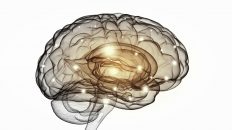By Jerry Morris, PsyD, MsPharm, MBA
MB (Marc Braman, MD, MPH):
Now, obviously we have issues with stimulation, being alert, we take stimulants for ADD much of the time, and then we have trouble with sleep. So, we’re having trouble with stimulation and rest or recovery, both. Could you explain that a little bit?
JM (Jerry Morris, PsyD, MSPharm , MBA):
Sure. When you look at sleep as a skill… First of all, sleep is a skill that not only we must learn, but really, over 90% of the population goes through the training in parenting and lifestyle, and home, and nutrition and exercise and all these complex balancing systems to where they learn the sleep skill pretty well. In fact, some people enjoy it as much as a steak or sex. So it’s a skill that is learned regularly by people. In some situations, some families, some experiences, some trauma, some lifestyles, it’s hard to learn certain skills. For instance, you wouldn’t learn to play the violin very easily, which is a complex skill, motor, cognitive and otherwise, in a war zone where you’re in the military in battle.
JM:
So some complex skills require the appropriate setting organically, socially, structurally to learn the skill. Now, learning the sleep skill is something that most parents spend a lot of time with. So either intuitively or implicitly, they understand it’s an essential and important skill for all kinds of health: Organic health, social health, psychological health, family health, so on and so forth. So parents learn a lot of things about what it takes to develop this complex skill of learning to turn off the activating parts of the brain and the nervous system that services that, and turn on the deactivating and internal regulation parts of the brain and not letting the externalities interrupt that process of switching between the two. And we have a lot of evidence about what kind of parenting, what kind of behavioral approaches, what kind of learning approaches help people to learn this kind of complex sleep skill.
MB:
So the good news is, being a skill, we really can change this. We’re not powerless, we don’t have to depend on pills the rest of our life, we actually have a lot of ability to manage this. And I’m hearing we have the stimulating part of our nervous system and the rest or recovery downtime part of our nervous system, and it’s really a matter of learning to manage those different parts of our nervous system appropriately and produce the best health.
JM:
That’s well said. When you’re learning this skill, it’s very, very important to realize that the research shows that when we treat ADHD or some of these other mood-related disorders and self-regulation disorders, you really can’t teach what you don’t have. So that some of the best evidence for success is not in medicating the self-control, which all of the research shows that with the amphetamine and related class drugs, and in other diagnoses as the drugs, that the combination of medications and behavioral treatments worked best in the short run but in the long run, behavioral treatment by itself where you’ve never medicated it teaches the skills and works best on outcomes. So that essentially, if all we do is give them an external medication control of this skill, they never develop the skill in depth, and therefore, we’re not growing the areas of the brain and the regulation they need, and that would be a real shame.
MB:
So, I think what I heard in that part of what you just said is that behavioral treatment, meaning, working with a counselor, psychologist to develop and grow that brain and those skills in the long term is more effective and better treatment than a medication-based approach.
JM:
Well, that’s exactly what the substance abuse and mental health associations complex review from the University of Ontario, they look at all the sciences which we’ve listed in our bibliography shows. And quite frankly, let me add something else. In the future and the new Health Care Reform and the Affordable Care Act, I think you’ll see physicians with a team like psychologists and RNs who are behaviorists, really having the manpower and team work to really spend the time to address these in a team-orientated fashion.
MB:
Excellent. Now, I wanna touch on these behavioral issues, these lifestyle issues that potentially cause ADD and potentially could be used as treatment and correcting them. Could you run through some of those? Like medications and food and exercise and those sorts of things for us?
Sleep in children with attention-deficit hyperactivity disorder (ADHD): a review of naturalistic and stimulant intervention studies. Cohen-Zion M, Ancoli-Israel S. Sleep Med Rev. 2004 Oct;8(5):379-402. Review. PubMed PMID: 15336238.
Side effects of methylphenidate and dexamphetamine in children with attention deficit hyperactivity disorder: a double-blind, crossover trial. Efron D, Jarman F, Barker M. Pediatrics. 1997 Oct;100(4):662-6. PubMed PMID:9310521.
Moderators and mediators of treatment response for children with attention-deficit/hyperactivity disorder: the Multimodal Treatment Study of children with Attention-deficit/hyperactivity disorder. The MTA Cooperative Group. Arch Gen Psychiatry. 1999 Dec;56(12):1088-96. PubMed PMID: 10591284.





